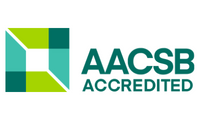Global Sustainable Business Management MSc
 Option for Placement Year
Option for Placement Year
 Option for Study Abroad
Option for Study Abroad

 Option for Placement Year
Option for Placement Year
 Option for Study Abroad
Option for Study Abroad

Global Sustainable Business Management MSc addresses future sustainable business practices on a global scale.
This course equips you with the knowledge and skills necessary to drive social and environmental change while providing a comprehensive understanding of business, organisations, and management. Drawing on expertise from Newcastle Business School, Northumbria’s Business Clinic, and global frameworks such as the UN Sustainable Development Goals, the curriculum emphasises responsible decision-making and sustainability.
Throughout your studies, you will acquire in-depth knowledge of management concepts, tools, and strategies, and learn how to lead organisations through the sustainability transition. Through research-rich learning and experiential activities like simulations, you will critically reflect on current practices and develop your leadership, communication, and decision-making skills.
Accreditation: Newcastle Business School is accredited by the prestigious Association to Advance Collegiate Schools of Business (AACSB).

Applicants should normally have:
A minimum of a 2:2 honours degree or equivalent, or substantial experience of working in a business organisation.
International qualifications:
If you have studied a non UK qualification, you can see how your qualifications compare to the standard entry criteria, by selecting the country that you received the qualification in, from our country pages. Visit www.northumbria.ac.uk/yourcountry
English Language requirements:
International applicants are required to have a minimum overall IELTS (Academic) score of 6.5 with 5.5 in each component (or approved equivalent*).
*The university accepts a large number of UK and International Qualifications in place of IELTS. You can find details of acceptable tests and the required grades you will need in our English Language section. Visit www.northumbria.ac.uk/englishqualifications
Full UK Fee: £11,000
Full International Fee: £20,950
Scholarships and Discounts
ADDITIONAL COSTS
There are no Additional Costs
else
Top 10: Business Studies at Northumbria is ranked 6th in the UK (Daily Mail University Guide, 2025).
Sustainability Champions: We’ve been named as the 1st most sustainable university in the northeast, as ranked by the 2024 People & Planet University League, and 24th globally. We’re also among a select group of international education providers as a Principles for Responsible Management Education (PRME) Champion for 2024 - 2025.
Accredited Business School: According to AACSB, “Approximately 6% of the world's schools offering business degree education have achieved AACSB accreditation, demonstrating a commitment to high-quality, rigorous standards, innovation, and continuous process improvement”. Northumbria retains prestigious 'double' AACSB Accreditation.
Global Sustainable Business Management MSc aims to develop experts and professionals in sustainable management who place environmental, social and governance (ESG) priorities at the centre of organisational and investment decisions. We are commited to training future management professionals motivated by personal and career aspirations to inspire and drive positive change in sustainability-focused organisations.
The course prepares you to become a skilled leader and manager in global business, equipping you to tackle the challenges faced by international organisations. Key modules focus on enhancing global management competencies and international human resource management skills, covering topics such as emotional intelligence, cultural awareness, teamwork, project management, and decision-making.
You will have a choice of summative projects to choose from. In place of a traditional dissertation, you can choose a consultancy project, working in a small team on a live business challenge with a host organisation. This hands-on experience connects theory to practice and helps develop key transferable skills.
The overall aim of the course is to enable students to develop an integrated and critically aware understanding of business, organisations and management within the context of sustainable business management. It is steered by research-led teaching from experts drawn from our Responsible Business Research Group, alongside input from nationally recognised practitioners.
You will be taught by tutors whose wealth of practitioner and research expertise adds to the richness of the delivery of the course.
Our staff research specialisms and diverse range of national and international practitioner links will further enhance your learning experience.
In addition to the teaching delivered by our academic team, you may have the opportunity to attend guest lectures and seminars with experts who are currently working within the sector, and who will share their first-hand experience of what it’s like to work in the field of global sustainable business.
This MSc course is informed by Northumbria’s research group Responsible Business, which represents a Primary research group, hosted by Newcastle Business School, Faculty of Business and Law. Northumbria has championed several initiatives on embedding the sustainability agenda in its organisational model and actively promoting to its stakeholder the United Nation’s 17 SDGS.
Throughout your course, you will be an active participant in the research-rich environment and agenda that is at the heart of Northumbria University. With conferences and research events regularly taking place, and with staff discussing their own research as it relates to the topics you’ll study, there’s a strong emphasis on engaging you in up-to-date enquiry-based learning.
Northumbria University is a research-intensive modern university. We stand ready. Empowering innovators, visionaries and change-makers to transform lives and make a remarkable impact on the world. Making the impossible possible.
Newcastle Business School is equipped with modern facilities to support your learning and professional growth, with access to lecture theatres, collaborative work and social spaces.
The library offers extensive online and offline resources, including business journals, databases, and research tools and the University possesses business software that includes ARIS Express Business Process Modelling, various SAS applications, Microsoft Project, specialist decision-making software, and Google Analytics,
Technology Enhanced Learning (TEL) is embedded throughout the course with tools such as the ‘Blackboard’ eLearning Portal and electronic reading lists that will guide your preparation for seminars and independent research.
There will be plenty of opportunities to put your learning into practice. The Graduate Futures team promotes all types of experiential learning including volunteering, internships and placements. While The Business Clinic provides opportunities for students to work on live projects, giving advice to our region’s businesses.
Back to top